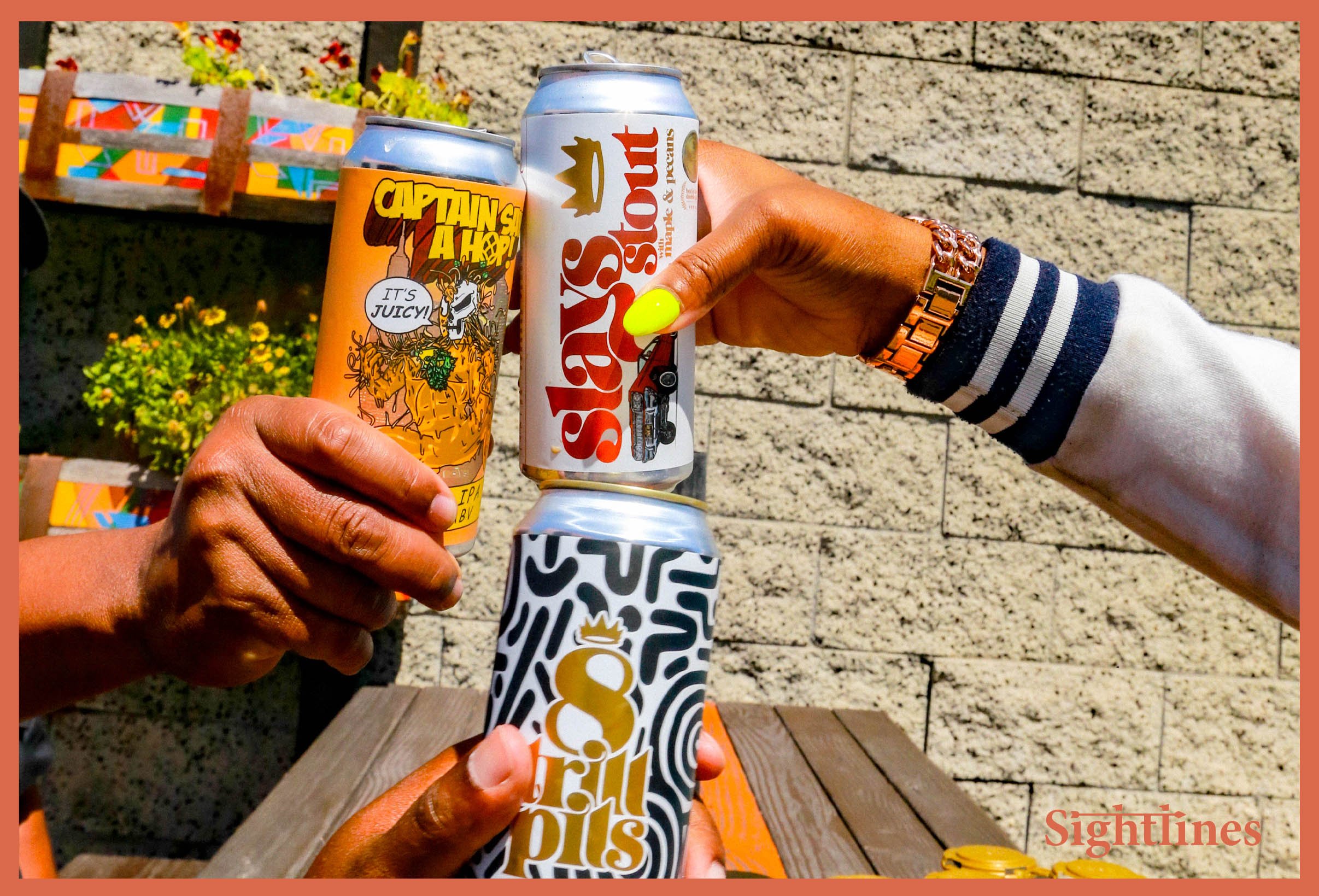Photo by: Drew(ski) Alabi @skilosthismind
THE GIST
Nearly one year to the day after the National Black Brewers Association (NB2A) announced its launch, a duo of Black-owned breweries is forming a business alliance that they say will help Black-owned companies take advantage of the retail opportunities that group has created.
Together, their portfolio includes four California brands—Crown & Hops Brewing Co., Full Circle Brewing Co., Sonoma Cider, and Speakeasy Ales & Lagers. No equity will change hands in the formation of this new alliance, called Circle of Crowns Beverage Group. Instead, the brands will have shared access to sales staff, ingredients purchasing, distribution networks, and some production space. Full Circle Brewing Co. already owns the Speakeasy and Sonoma Cider brands and contract brews Crown & Hops beer. Production of all four brands will happen at Full Circle’s Fresno location.
The alliance has a production capacity of roughly 25,000 barrels and the ability to double that through the addition of more fermenters, without requiring further construction. Its network of independent distributors will give the brands access to nearly that entire state, which is the U.S.’s second-largest beer market behind Texas. Circle of Crowns leadership says it aspires to be a Top-50 craft brewery; the 50th spot on the Brewers Association’s 2023 list of largest craft breweries by volume was held by IndieBrew, itself a collective formed by the merger of Scofflaw and Bearded Iris breweries, which reportedly brewed 54,770 BBLs of beer in 2022 (the most recent year for which data is available).
“We are now an entity that has the production ability, the brands, the distribution network to answer the call of all these chains that know that a Black culture brand option on their shelves would be great for the mass consumer, but has yet to have an entity that can produce at the level to sustain those shelf spots,” says Arthur Moye, CEO and founder of Fresno’s Full Circle Brewing Co. “We are the one and only that can actually complete that circle.”
An example of that retail demand was Walmart’s decision in 2021 to stock Weathered Souls’ Black is Beautiful beer in more than 300 stores. Funkytown Brewing in Chicago is available in 700 stores in three states, with production centralized at the Pilot Project Brewing brewery incubator. Moye adds that the new alliance has the ability to soon produce around 15,000 barrels collectively, with hope to scale further toward its 25,000 capacity soon after.
WHY IT MATTERS
Circle of Crowns shares commonalities with the wave of craft-on-craft partnerships that have increased in recent years as the overall market for craft beer slows. But it’s also responding to specific limitations and opportunities for Black-owned brands.
After the 2020 murder of Geoge Floyd focused national attention on racial justice, companies within the beverage industry responded in part by seeking out Black-owned brands. This includes large retailers such as Whole Foods, Target, and Hyatt Hotels Corporation, but Moye says most Black-owned breweries lacked the brewing and distribution infrastructure to rapidly scale to meet demand from large chains. Three years later, when the NB2A began its work promoting Black-owned beer to retailers, interest was still high. But again, few of those breweries were poised to supply enough beer to stay on a retailer’s shelves throughout an entire state, and to support those placements with sales staff. These shifts track with previous Sightlines research that shows Black-owned businesses growing at triple-digit rates.
“There was nobody to actually walk through those doors. Us and Crown & Hops independently were doing what we could to get our foot in those doors, and now they’re wide open,” Moye says. “And together we’re just going to run through them.”
Moye estimates that a company would need to be capable of brewing roughly 5,000-10,000 barrels of a single brand of beer to maintain statewide placements in California, though that could be higher if the retailer was, for example, a large grocery chain. This has been a challenge for Black-owned brands for several reasons:
1. There simply aren’t many of them nationally. The NB2A estimates less than 1% of breweries nationwide are Black-owned. And with most startup breweries producing well below 1,000 barrels a year, the lack of Black-owned businesses means there just aren’t many that already exist and could meet that 5,000-10,000-barrel demand.
2. Among Black-owned breweries, a higher proportion than the industry average (about half) do not own their own production spaces, and are reliant on contract brewing or incubator-type arrangements to make their beer. This lowers the financial barriers to entry, but also limits a brand’s control over how much beer it can make, and on what schedule.
Beny Ashburn, co-founder and CEO of Crown & Hops, doesn’t rule out the possibility of more brands joining Circle of Crowns in the future. In the meantime, though, she stresses the importance of other Black-owned brands sharing production and human resources in order to meet the pent-up demand from retailers and consumers alike. The NB2A has helped coalesce those breweries, and Circle of Crowns is manifesting that organization’s mission.
“More importantly, rather than joining our alliance, is just being a production resource and a business resource for other Black-owned brands to be successful,” Ashburn says. “The hardest part of producing beer is not having the facility to do so, not having a sales team to assist in making sure the beer is on the shelf, not having a marketing team. We are now joining our resources to be a one-stop shop to accommodate that and to do it really, really well.”


